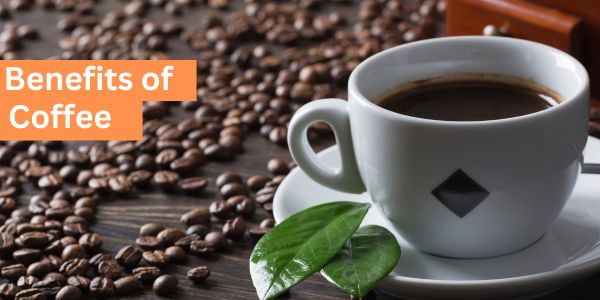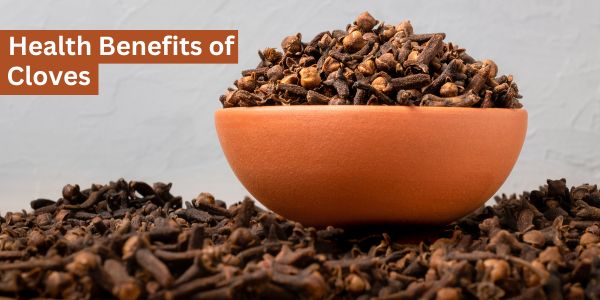Introduction

Ok, today, we’re diving deep into a juicy topic, literally! We’re talking about the top 12 foods to eat before a fast. Whether you’re fasting for health, spiritual growth, or personal goals, what you eat beforehand can make or break your experience. And guess what? We’ve got you covered with the best, science-backed, hunger-busting meal ideas. So, let get going.
Complex Carbohydrates
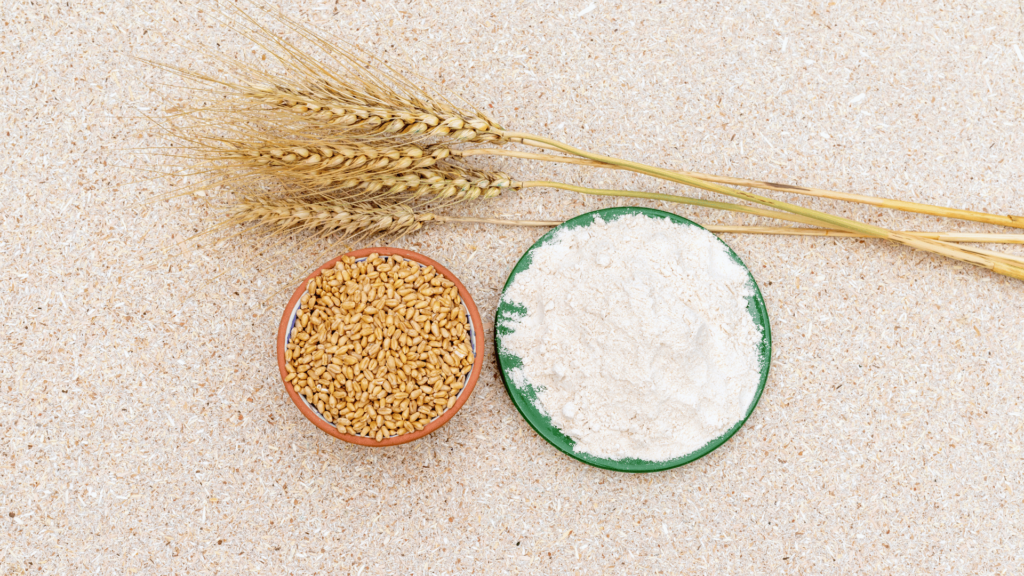
Carbs have had a rough reputation over the years, but let’s set the record straight: not all carbs are the enemy! When prepping for a fast, complex carbohydrates are your best friend. Think brown rice, whole-grain bread, and quinoa, these foods don’t just fill you up; they fuel you for the long haul.
So, what makes complex carbs so special? It’s all about fiber, baby! Fiber slows down digestion, making you feel fuller for longer. No more grumbling stomach an hour into your fast!
A study published in the American Journal of Clinical Nutrition found that individuals who consumed a high-fiber diet had significantly better blood sugar regulation and prolonged satiety during fasting periods compared to those who consumed refined carbohydrates. No spikes, no crashes, just smooth sailing.
But wait, there’s more! Whole grains don’t just stop at fiber; they’re nutrient powerhouses packed with B vitamins (hello, energy boost!), iron (your blood’s bestie), and magnesium (muscle-relaxing magic). So, before you start your fast, load up on the good carbs, your body will thank you.
Healthy Fats
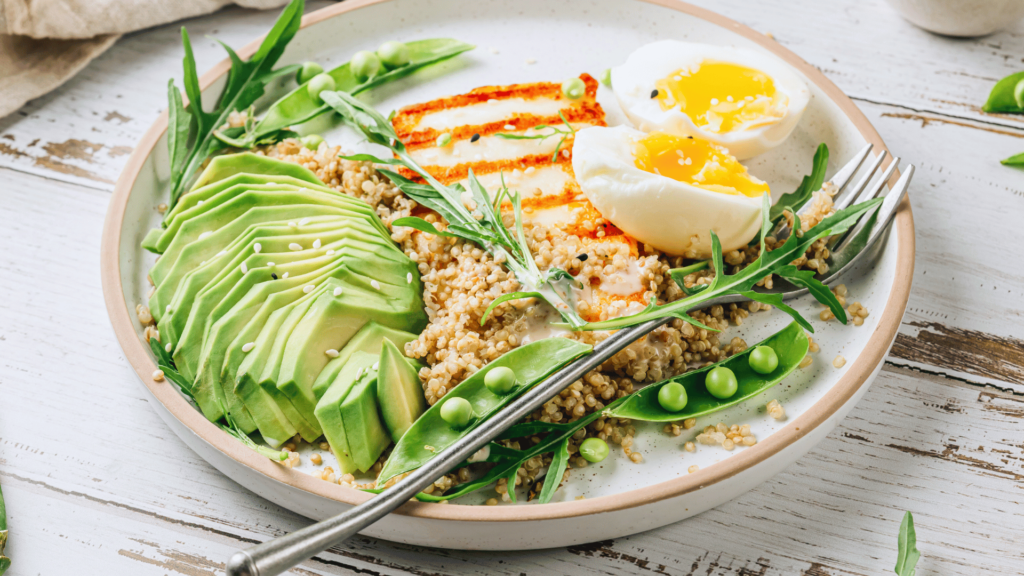
For years, fat was treated like the villain of nutrition. But plot twist: it’s actually a hero! Especially when it comes to fasting, healthy fats are like that reliable friend who sticks around when things get tough. Foods like avocados, nuts, seeds, and olive oil provide long-lasting energy, helping you power through your fast like a pro.
Fat takes its sweet time to digest. While this might sound like a bad thing, it’s actually a game-changer for fasting. Instead of burning through your food supply in an instant, your body gets a slow, steady stream of energy, no crashes, no cravings, just pure, sustained fuel.
A study published in The Journal of Nutrition demonstrated that diets rich in monounsaturated and polyunsaturated fats improved metabolic flexibility during fasting, allowing participants to maintain stable energy levels without excessive hunger.
And the benefits don’t stop there! Healthy fats also play a key role in absorbing fat-soluble vitamins (A, D, E, and K). Without enough fat in your diet, these essential nutrients go to waste! Plus, fats like omega-3s (found in walnuts and flaxseeds) fight inflammation and keep your brain sharp. So, don’t fear the fat, embrace it as a fasting prep essential.
Lean Proteins
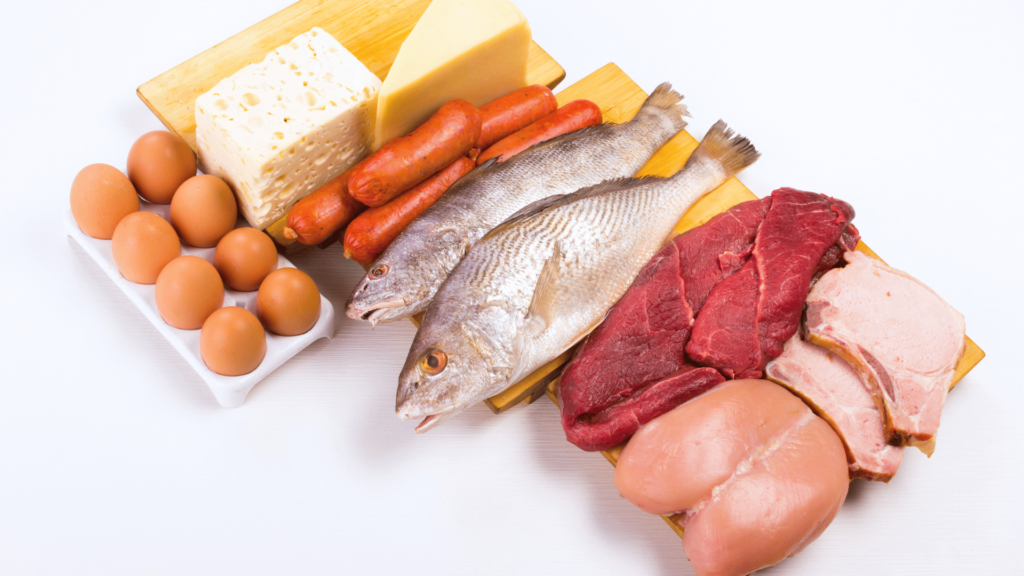
If complex carbs are the fuel and healthy fats are the long-haul support, then lean proteins are the bodyguards that keep you going strong. Chicken, turkey, fish, lentils, chickpeas; these protein-packed foods are key to keeping your muscles and metabolism happy.
Here’s why protein is so crucial: Unlike carbs and fats, your body doesn’t store protein. That means you need to get enough before fasting to keep your body in tip-top shape. And let’s not forget about satiety; protein takes longer to digest, keeping those hunger pangs at bay for hours.
A meta-analysis in The Journal of the International Society of Sports Nutrition found that individuals consuming sufficient protein before a fasting period retained significantly more muscle mass compared to those who did not.
Also Read: 9 Diabetes-Friendly Fruits for Better Blood Sugar Control
But not all protein is created equal! The goal is to choose lean sources, foods that are high in protein but low in unhealthy fats. Think grilled chicken instead of fried, or salmon instead of a greasy burger. This way, you get all the muscle-building benefits without any unnecessary baggage.
Fruits
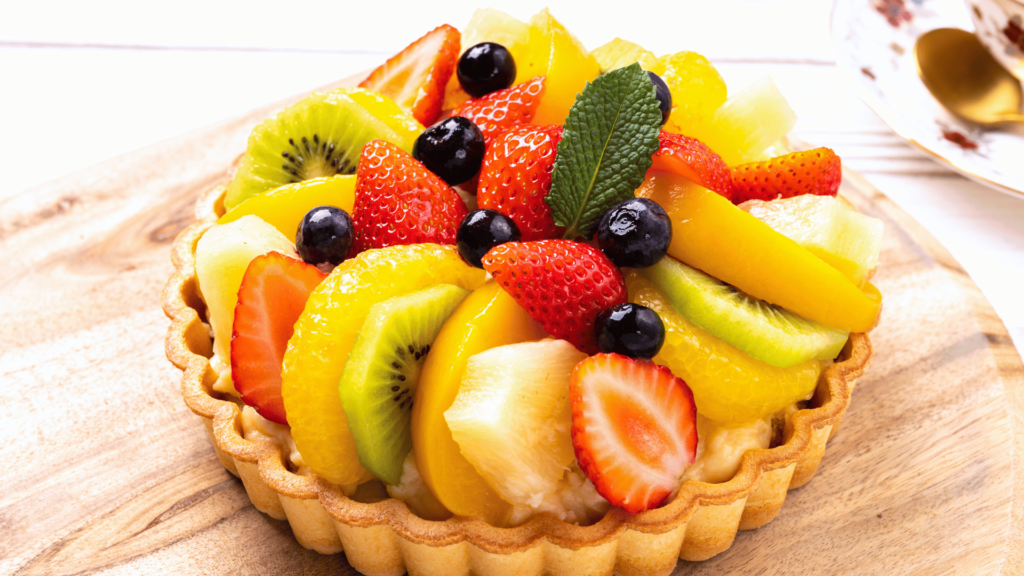
Let’s wrap up with something sweet! Fruits aren’t just delicious; they’re also packed with vitamins, minerals, and hydration. When prepping for a fast, hydration is key, and fruits like watermelon, oranges, and grapes deliver a double dose of water and nutrients.
A study published in Advances in Nutrition revealed that individuals who consumed a diet rich in fruits before fasting experienced reduced fatigue and improved hydration levels compared to those who did not.
Each fruit brings its own unique benefits to the table. Oranges and grapefruits? Loaded with vitamin C, a powerful antioxidant that boosts your immune system. Bananas? Rich in potassium, which helps regulate hydration and muscle function. Berries? A fiber-packed, antioxidant-rich powerhouse that keeps your digestion happy.
And let’s not forget the natural sugars in fruit. Unlike processed sugar, these come with fiber and water, slowing down absorption and preventing those dreaded energy crashes. Plus, they curb sweet cravings in a healthy, guilt-free way!
Vegetables
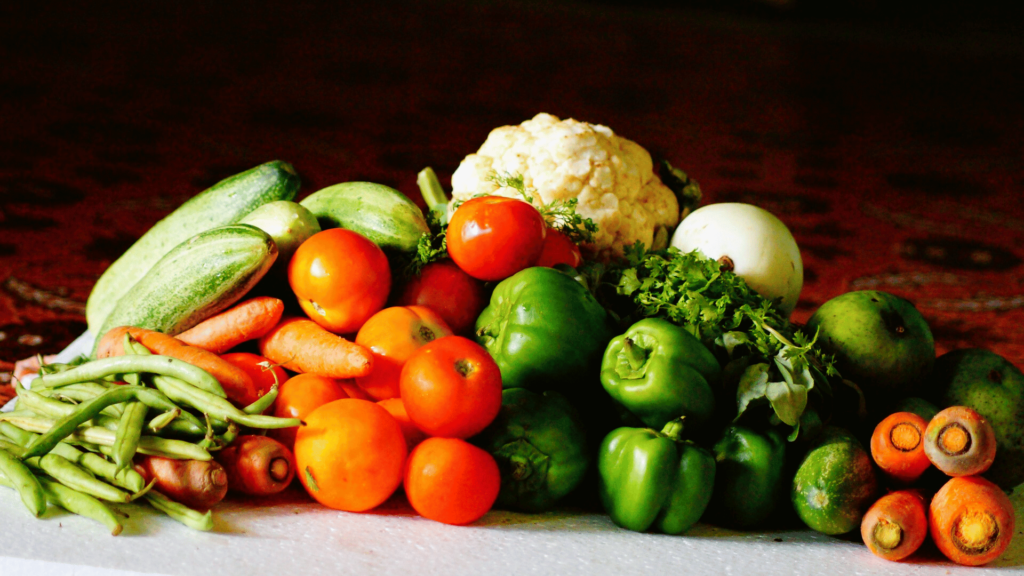
Let’s hear it for vegetables, the real MVPs of nutrition! These colorful, crunchy, and oh-so-nutritious powerhouses are loaded with vitamins, minerals, and fiber, making them a must-have before you start fasting. If your body were a high-performance car, vegetables would be the premium fuel that keeps everything running smoothly.
A study in Nutrients found that diets high in leafy greens and cruciferous vegetables significantly improved gut microbiota diversity, which is essential for digestion and overall health during fasting.
Leafy greens like spinach, kale, and Swiss chard are absolute rockstars, packed with vitamins A, C, and K, plus iron and magnesium. These nutrients help boost immunity, strengthen bones, and support energy production, all crucial when you’re about to go for hours without food.
And let’s not forget the mighty cruciferous veggies like broccoli, cauliflower, and Brussels sprouts, which come loaded with fiber and antioxidants to keep your digestion humming like a well-oiled machine.
But wait, there’s more! Vegetables with high water content, such as cucumbers, zucchini, and bell peppers, work double duty by hydrating your body, a total game-changer before fasting. Plus, fiber-rich veggies help you feel full longer, keeping those dreaded hunger pangs at bay. So, if you’re prepping for a fast, make sure your plate is looking extra green!
Legumes
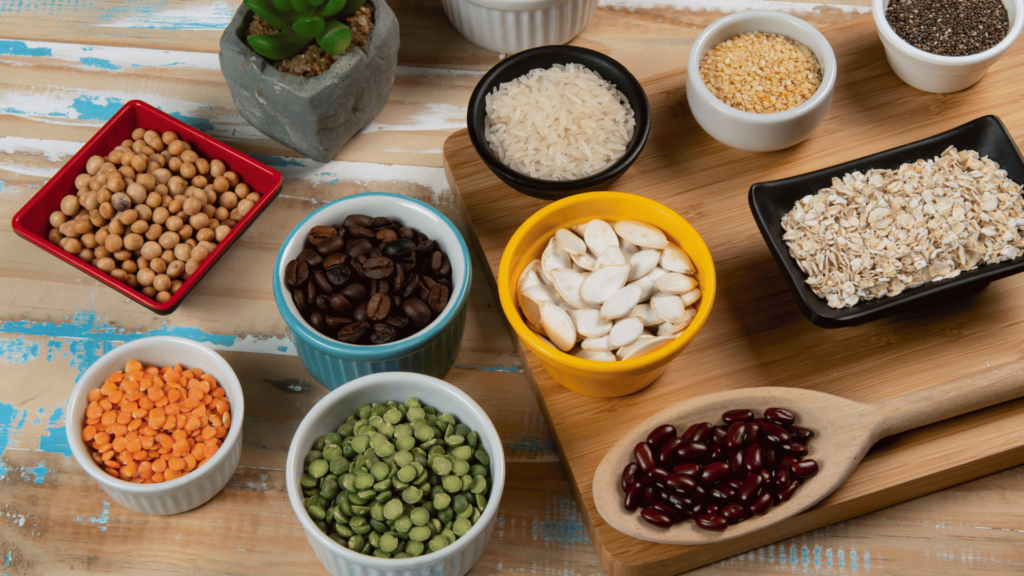
If there’s one food group that punches way above its weight class, it’s legumes. We’re talking about beans, lentils, chickpeas, those tiny, nutrient-packed wonders that can fuel you for hours. These little guys bring the trifecta: protein, complex carbs, and fiber, all of which work together to give you long-lasting energy and keep you feeling full for the long haul.
A study published in The Journal of the Academy of Nutrition and Dietetics found that individuals who consumed legumes regularly had better blood sugar control and longer satiety, which is beneficial when fasting.
One of the biggest perks of legumes? Their protein power! Unlike simple carbs that give you a quick sugar rush followed by an epic crash, the slow-digesting complex carbs in legumes provide a steady energy release, keeping you in top form during your fast.
Plus, legumes are packed with iron, potassium, and magnesium, all essential for keeping your muscles, nerves, and oxygen levels in check.
Dairy Products
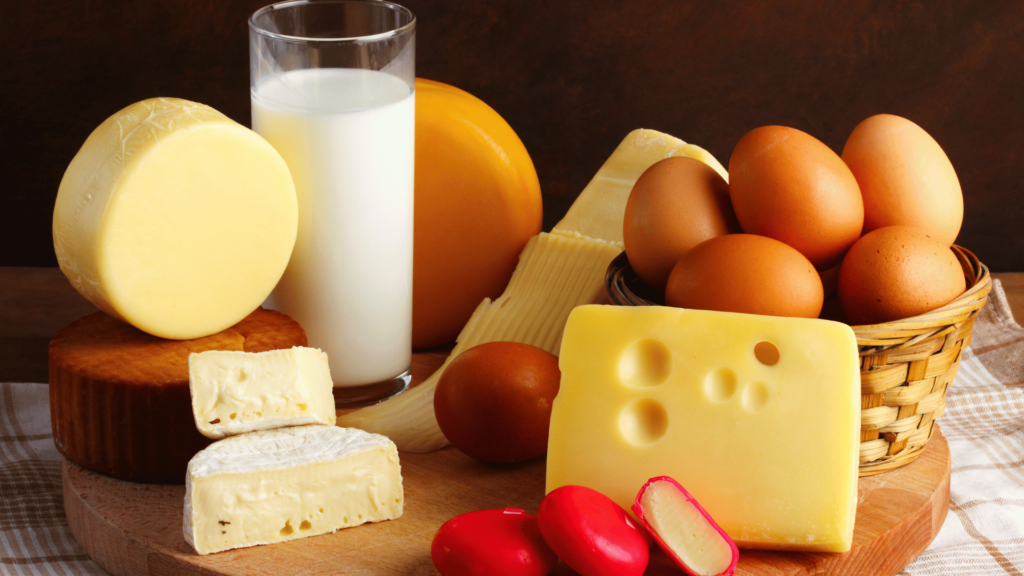
Dairy might just be your secret weapon before fasting. From yogurt and milk to cheese, these delicious staples provide a powerhouse combo of protein, healthy fats, and essential vitamins, all key to keeping you nourished before you hit that fasting reset button.
Yogurt, especially Greek yogurt, is a total gut health superhero. Thanks to its probiotic content, it keeps your digestive system happy, reducing bloating and discomfort. And because Greek yogurt is high in protein and low in sugar, it helps keep you full while avoiding those sugar crashes. Win-win!
Also Read: 10 Morning Drinks That Will BOOST Your Metabolism Instantly
Milk, on the other hand, brings calcium, vitamin D, and protein to the party, fantastic for keeping your bones strong, muscles working, and energy levels stable. And let’s not forget about cheese, yes, it’s calorie-dense, but in moderation, it provides healthy fats and protein to keep hunger at bay. So, before your fast, grab a spoon, pour a glass, or slice a piece—, our body will appreciate it!
Nuts and Seeds
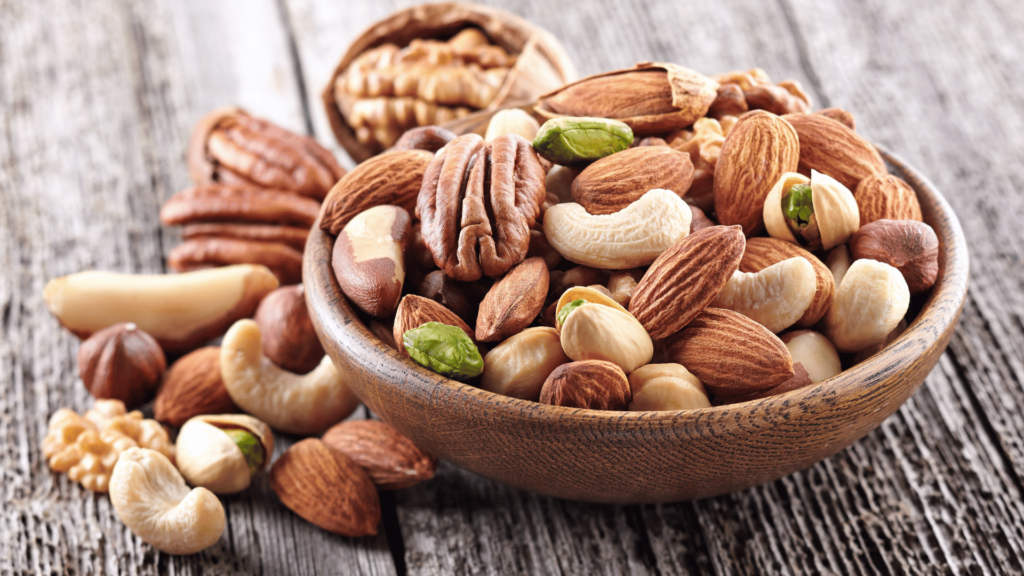
If you’re looking for a nutrient-dense, energy-packed snack, look no further than nuts and seeds. Don’t be fooled by their small size, these tiny treasures are bursting with healthy fats, protein, fiber, and essential vitamins and minerals.
Almonds, walnuts, chia seeds, and flaxseeds are particularly stellar choices. Almonds and walnuts provide monounsaturated fats, which help keep you full and supply a steady release of energy. Meanwhile, chia seeds and flaxseeds are fiber and omega-3 powerhouses, aiding digestion while giving your brain and body the nutrients they need.
The best part? They’re super efficient! Since nuts and seeds are calorie-dense, just a small portion delivers a huge energy boost. Whether you’re munching on a handful of almonds or tossing some chia seeds into your yogurt, these little guys are worth their weight in gold when it comes to fasting prep.
Hydration
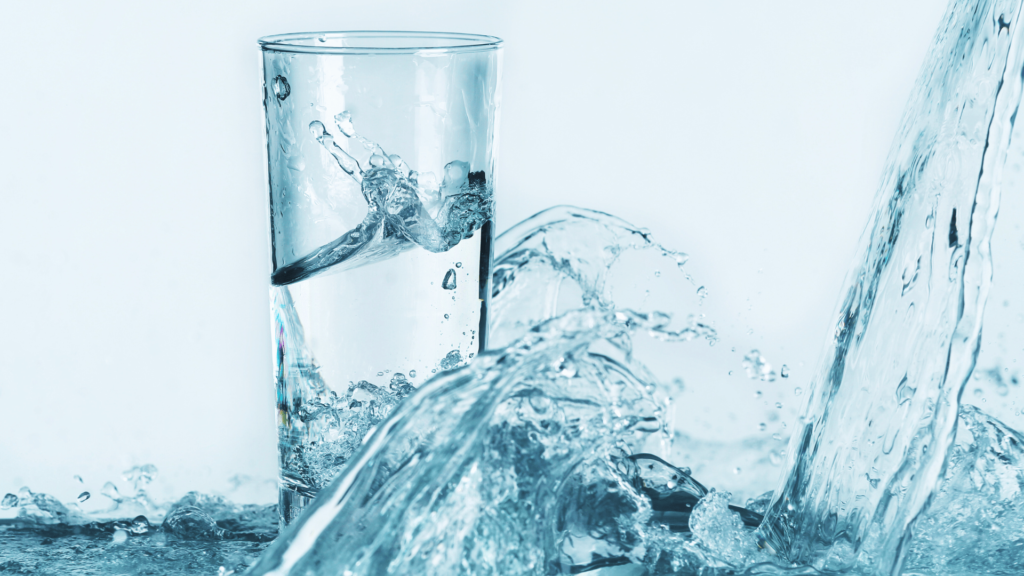
Food is important, sure, but let’s talk about the real MVP of fasting prep, hydration! Without enough fluids, fasting can quickly turn into a headache-filled, sluggish experience. That’s why staying hydrated before you start your fast is absolutely essential.
Water should be your best friend, but don’t forget about hydrating foods like cucumbers, watermelon, and oranges. These foods have a high water content, helping you stay hydrated without chugging gallons of water. And if you want to level up?
Coconut water is a fantastic option, it’s packed with electrolytes like potassium and sodium, which help maintain fluid balance and prevent dehydration.
Herbal teas and broths can also give you a hydration boost with added nutrients. But beware! Steer clear of caffeinated and sugary drinks, as they can dehydrate you and lead to energy crashes, not exactly ideal when you’re trying to fast like a champ.
Conclusion
Fasting isn’t just about skipping meals, it’s about preparing your body the right way so you can get the best results without feeling like a zombie. By loading up on complex carbs, healthy fats, lean proteins, fruits, vegetables, legumes, dairy, nuts, and seeds, you’re giving your body the tools it needs to breeze through your fast with energy, focus, and ease.
Remember, the key to a successful fast is balance. Listen to your body, stay hydrated, and fuel up wisely before you begin. That way, you’ll feel strong, healthy, and ready to take on your fasting journey like a pro.



